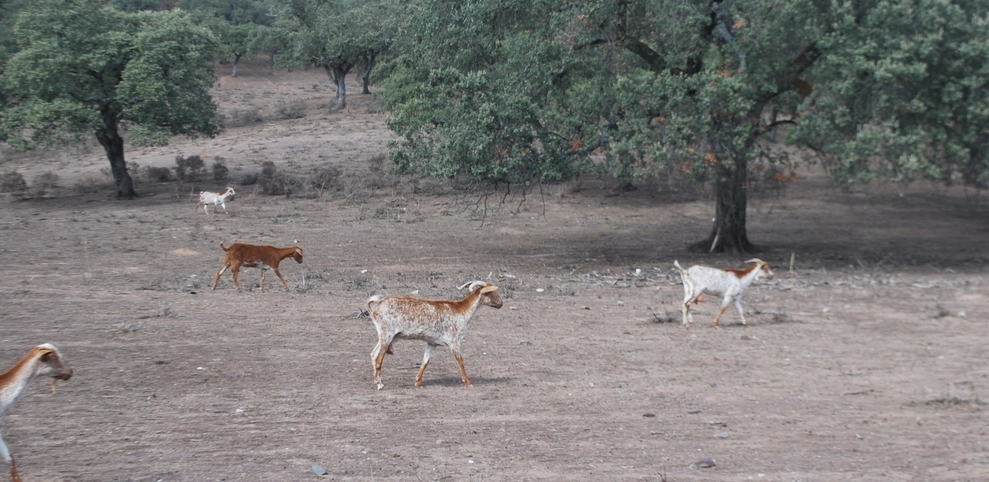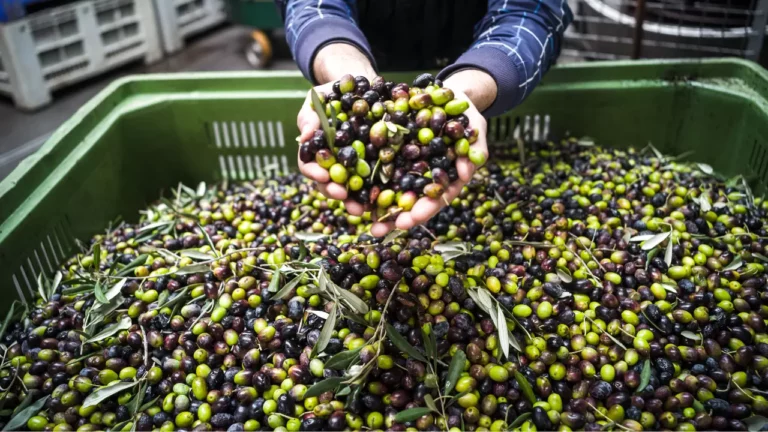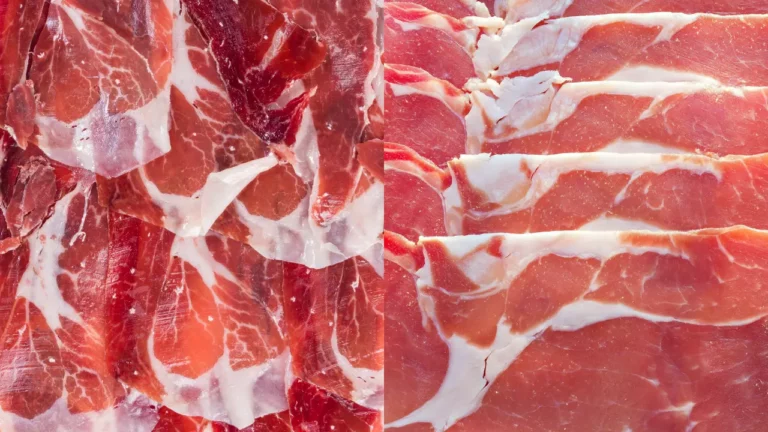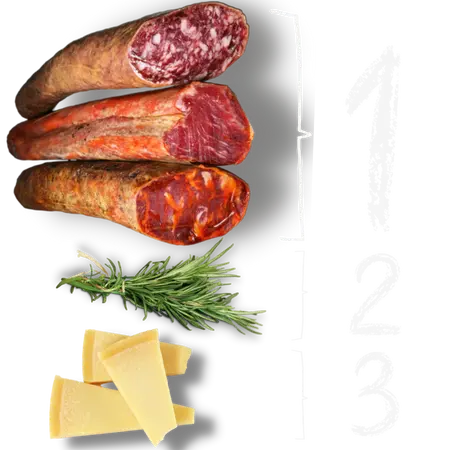For the past century, animal welfare in the livestock industry has been an increasingly important issue. But why should we care and what can we do to make a difference? From examining the moral and ethical considerations of animal welfare to uncovering practical steps to improve animals’ living conditions, this article will clarify why animal welfare is so important and provide tangible solutions for improving it.
Table of Contents
Introduction
Animal welfare in livestock is an increasingly important issue for farmers, ranchers, and consumers alike. As we become more aware of the role animals play in our world, it is essential that we strive to provide them with a comfortable and secure living environment wherever possible. This article explores the importance of animal welfare in the livestock industry, explaining why it matters and what steps can be taken to improve it. Animal welfare isn’t just a matter of providing adequate care; it encompasses many aspects including animal health, housing, nutrition, and humane handling. It is only through a comprehensive approach to animal welfare that we can ensure the wellbeing of animals and maintain public trust in the farming industry.
At its core, animal welfare is a moral and ethical obligation towards animals. As such, it encompasses the idea that humans have an obligation to treat all living beings with respect and kindness, regardless of species or domestication status. This value system is shared by many different cultures around the world, which adds weight to the argument for improved animal welfare in livestock production.
In addition to moral considerations, public opinion also plays an important role in how animal welfare is perceived by society. In recent years, there has been an increasing focus on issues surrounding animal welfare in the media and among various stakeholders. This has resulted in increased pressure being placed on organizations within the livestock industry to adhere to higher standards when it comes to animal care.
Finally, governments are also imposing stricter regulations on livestock producers as part of their efforts to protect animal welfare rights. For example, across Europe there are now laws governing how animals should be kept and treated while they are being raised for food production. In some cases, these regulations are very specific and are designed to ensure that animals are being treated humanely.
By improving animal welfare practices in livestock production, we can ensure that animals are not subjected to any unnecessary stress or suffering. In this article, we will look at the moral and ethical impact of animal welfare as well as public opinion and industry regulations related to it before examining some practical suggestions for improving animal welfare.
The Moral and Ethical Impact of Animal Welfare
The concept of animal welfare is closely linked to our understanding of moral and ethical obligations towards animals. Increasingly there is public recognition that animals should not be subjected to unnecessary pain, suffering and distress, but instead should be provided with a comfortable life free from fear and distress. Over the years this has resulted in animal welfare becoming a major topic of discussion across many nations, with both practical implications as well as moral considerations.
There are multiple philosophies concerning the rights of animals and how humans should interact with them based on their individual beliefs of what is ethically right or wrong. This dialogue has been particularly important in the livestock industry, where animals are kept for human benefit and used for the production of food, fiber, leather, fur and other products derived from animal labour or animal-based products. As such, issues such as humane slaughter, transport regulations and disease control have come under close scrutiny in order to ensure that these animals are treated as humanely as possible in accordance with laws or regulations governing their use and care.
The debate around animal welfare has also led to changes in the legal treatment of animals, particularly when it comes to food production and processing where humane methods used for handling and killing are now commonplace in most countries across the world. Animal welfare standards and laws are enforced at both an international level as well as by individual countries. For example, EU legislation on animal welfare includes regulations on conditions which must be met regarding housing requirements, exercise standards, transport regulations, humane slaughter practices and veterinary care. Furthermore, in the US, The Humane Methods of Livestock Slaughter Act requires that all livestock slaughtered for food must be stunned before they are killed so that they feel no pain or suffering during their death.
In addition to legal considerations, advocates for animal welfare often focus more heavily on the moral implications of certain practices within livestock production. For instance, many people believe that it is morally wrong to cause any type of pain or suffering to an animal regardless of whether or not it is necessary for human benefit. With this in mind, some philosophers suggest that humans have a moral obligation to ensure that all animals are treated with respect and provided with a comfortable life free from fear and distress.
In conclusion, animal welfare is an important consideration for those involved in livestock production for ethical reasons as well as for practical outcomes related to public opinion and industry regulations. It is therefore essential that producers take steps to ensure that their animals are provided with adequate housing, nutrition, handling methods
Public Opinion and Industry Regulations
Public opinion of animal welfare in livestock production is an important factor in driving industry regulations. Consumers are becoming more aware of the conditions animals are raised under and are increasingly favoring products produced in humane conditions over those produced in less humane conditions. This increased awareness is leading to additional pressure from consumers on companies to adhere to higher standards of animal welfare. In response, many countries are now beginning to implement stricter regulations on how animals must be cared for throughout their lifecycle. These regulations can vary significantly by region and industry, but they generally involve requirements such as minimum space requirements, adequate nutrition, humane handling practices, and regular veterinary care when needed.
Furthermore, companies that produce and sell animal-sourced foods are often held to higher standards regarding animal welfare. Many of these companies have adopted corporate animal welfare policies outlining the ethical treatment of animals and prohibiting any unnecessary suffering or distress. Additionally, animal welfare organizations have pushed for tighter regulations for humane animal production, including mandatory labeling of products that meet certain standards of animal welfare. This transparency has encouraged companies to prioritize animal welfare and has made it easier for consumers to make informed decisions about the food that they purchase.
Finally, the consumer has the power to influence animal welfare regulations through their purchasing decisions. By choosing products produced in humane conditions, consumers can help create a demand for higher quality animal-derived products while putting pressure on companies to adhere to stricter regulations. This ultimately leads to better outcomes for both animals and producers, with improved meat quality and reduced labor costs due to reduced stress on animals. In this way, public opinion and consumer demand play a vital role in driving industry regulations towards improved animal welfare in livestock production.
Practical Suggestions for Improving Animal Welfare
Humane ways of housing and caring for animals is an important way to improve animal welfare. Animals should be provided with appropriate shelter, bedding material, space allowances, and protection from predators or harsh weather conditions in order to ensure their comfort and safety. Additionally, adequate ventilation must be provided to prevent undue heat or humidity stress. Proper nutrition is also essential for good animal welfare. Producers should strive to provide quality feed and water that meet the specific needs of the different species they are raising. Nutritional deficiencies can lead to poor health outcomes, so it is important that a balanced diet is provided according to the nutritional requirements of each species.
Proper handling procedures must also be followed in order to ensure the safety of both animals and humans. This includes the use of proper restraint techniques, the use of appropriate equipment, and the avoidance of rough handling or badgering. In addition, regular monitoring and evaluation can help identify areas for improvement in animal welfare. This can involve physical checks for signs of distress or discomfort as well as assessments of mental state or behavior. Crucially, educating both producers and consumers on the importance of animal welfare is key to improving practices in the livestock industry. Producers should be aware of current regulations and standards as well as best practices for humane animal handling and care, while consumers should be encouraged to seek out products from producers who prioritise animal welfare.
In conclusion, there are several practical steps which can be taken in order to improve animal welfare in the livestock industry. Ensuring humane housing and care through providing appropriate shelter, bedding material, space allowances, protection from predators and harsh weather conditions as well as sufficient ventilation is one way to do this. Establishing a proper nutrition program is also essential for animal welfare, as nutritional deficiencies can lead to poor health outcomes. Furthermore, proper handling procedures must be followed in order to ensure the safety of both animals and humans. Finally, regular monitoring and evaluation combined with education initiatives targeted towards both producers and consumers are critical in ensuring improved animal welfare standards in the livestock industry.
Focus on Animal Health and Housing
Animal health and housing are essential components of animal welfare that must be taken into account when managing livestock production. Ensuring proper housing is fundamental for the safety and well-being of animals, as an improper living environment can cause a range of physical ailments, behavioral problems, and emotional distress. To achieve humane animal husbandry practices, producers must provide the right type and size of housing appropriate for the species they are managing. For example, it is important to ensure that pigs have access to straw bedding so they can root around and fully stretch out their bodies without feeling confined or constrained. In addition, providing adequate space for the animals is also necessary to avoid overcrowding and reduce stress levels.
Animal health care should include rigorous measures to prevent, identify, and treat diseases, parasites, illnesses, injuries, or any other threat that may exist in the environment. This includes adopting biosecurity protocols such as quarantine periods when introducing new animals into an existing herd or flock; regular health checks; vaccinations; deworming; proper nutrition; and prompt treatment of any injury or illness when observed. Furthermore, keeping records of individual animal care will help producers track changes in the health status of their animals over time so they can take proactive steps to improve animal welfare in their operation. Moreover, conscientious monitoring of environmental factors such as temperature, humidity, and air quality should be done regularly to secure safe and healthy conditions for the livestock.
Overall, by focusing on both animal health and housing regulations one can effectively maintain high standards of animal welfare in livestock production. The key is to have clear guidelines and policies on how these two factors should be handled in order to ensure humane treatment of animals while still maintaining a profitable business. By taking these steps to protect animal welfare, producers can assure customers that they are doing their part to protect ethical standards in livestock production and win loyalty from buyers who prioritize humane farming practices.
Nutritional Standards
Ensuring adequate nutrition for livestock is an effective way to improve animal welfare, as well as economic efficiency of production systems. Nutrition plays an integral role in maintaining health, growth, and reproductive performance in animals, which means it’s essential for producers to provide them with an appropriate diet. Nutritional standards should be developed and monitored in order to ensure that animals are adequately receiving essential nutrients and vitamins in a balanced ratio. Nutritional requirements vary depending on species and life stage, so it’s important for producers to have a full understanding of the dietary needs for their animals.
Feed quality is also important for nutritional standards, as it directly impacts the health and welfare of animals. To guarantee good feed quality, management practices must be in place to monitor the feed program and make sure that all animals are receiving appropriate nutrition levels. This can be done through proper storage techniques, regular feed testing, and carefully inspecting feed ingredients for contamination or spoilage before it is mixed into feed rations. Additionally, producers should regularly evaluate the nutritional value of their feeds and update their ration formulation accordingly. As such, it is crucial that producers have access to professional advice and resources to help them develop feeding programs that meet the nutritional needs of their animals.
By adhering to established nutritional standards and implementing management practices that ensure adequate nutrition for their livestock, producers can play a key role in improving animal welfare while also protecting their own bottom line. Furthermore, working with other industry stakeholders to develop improved nutritional standards can help ensure better outcomes for both producers and their animals alike. Building mutually beneficial relationships between animal owners, government officials, farm associations, universities, research centers and other experts is key to finding solutions that benefit everyone involved in the industry.
In conclusion, establishing strong nutritional standards for livestock is an important way of ensuring animal welfare in the livestock industry. Producers should strive to provide adequate nutrition for their animals so they can enjoy a healthy life free from disease or suffering. It’s also essential to keep up with industry regulations so that producers know what they need to do in order to stay compliant with laws governing animal welfare. By taking practical steps to understand and adhere to existing nutritional standards, producers can play a key role in achieving improved animal welfare outcomes in the livestock industry.
Humane Handling
Humane handling of animals is essential for their well-being and should be a priority in the livestock industry. Not only does humane animal treatment respect and compassion, it also helps to create an environment where their needs are met more effectively. Research has shown that humane animal handling can increase productivity, reduce stress levels, and promote better overall health in animals. By providing a safe and comfortable environment, animals can focus on daily activities like eating, drinking, sleeping and breeding. Furthermore, the risk of injury or death caused by mishandling or improper treatment by handlers is drastically reduced when humane handling techniques are used.
In order to ensure that proper animal handling methods are being followed, it is important for livestock producers to provide training for all employees involved in animal handling. This training should cover topics such as how to handle animals safely, how to recognize signs of distress in animals, and how to respond appropriately in certain situations. Additionally, it should place emphasis on the importance of providing a calm environment for the animals during transport or other stressful times. By equipping farm personnel with knowledge about animal behavior and welfare, producers can ensure that their animals receive proper care throughout their life cycle.
In addition to employee training, humane transport of animals is another important factor to consider when assessing animal welfare. Proper transportation practices include ensuring that vehicles are fit for the purpose they are used for (e.g., providing adequate ventilation in warm weather), that the trip duration does not exceed the recommended maximum (typically 8 hours or less), that there is adequate food and water available during transport, and that the vehicle stops regularly so that animals can rest. Furthermore, it is essential that all loading and unloading of animals takes place in a way that minimizes stress levels and does not cause undue pain or discomfort to the animals; this might include using ramps instead of lifting them by hand. Employing these best practice standards helps ensure that animals are given the best chance to remain healthy and safe during transport.
Overall, humane handling practices play an important role in promoting animal welfare in the livestock industry. Producers and handlers must take into account not only the physical safety of their animals but also their emotional wellbeing; both factors are equally important for creating good conditions for livestock production. With proper training, attention to detail during transport, and respect for all animal species involved in farming operations – we can take significant strides towards improving animal welfare standards worldwide.
Conclusion
In conclusion, it is clear that animal welfare in the livestock industry is an important issue. It is essential for us to be mindful of the moral and ethical implications of how we treat animals and to take steps to improve their welfare. To ensure that livestock animals are well-cared for, we must focus on providing them with adequate housing and nutrition, as well as humane handling techniques. Similarly, effective industry regulations must be established and enforced to help ensure high standards of animal welfare.
Furthermore, public opinion also plays a key role in influencing how animals are treated; widespread education about animal welfare can help encourage positive change. This should include topics such as humane slaughter practices, responsible breeding, proper care and handling of animals, as well as public communication and transparency regarding farm operations. By raising awareness of the need for improved animal welfare in livestock production, both government organizations and the public can work together to form a more ethical food system.
Ultimately, with a collective effort from both industry regulations and the public, animal welfare in the livestock industry can be sustained and improved. Through adequate education, enforcement of standards, and open communication we can create an environment where animal welfare is prioritized and respected. Ultimately improving animal welfare will have a beneficial effect on both humans and animals alike; it is our responsibility to actively strive for betterment and make sure that animals receive the care they deserve.
The importance of animal welfare in the livestock industry cannot be overstated. Poor conditions can lead to unnecessary suffering, and it is essential that the public and industry regulations take animal welfare into account. Fortunately, there are steps we can take to ensure that animals are well-cared for. This includes focusing on animal health and housing, setting nutritional standards, and practicing humane handling. By taking these steps, we can make substantial improvements in animal welfare, leading to more humane and ethical production of livestock.














